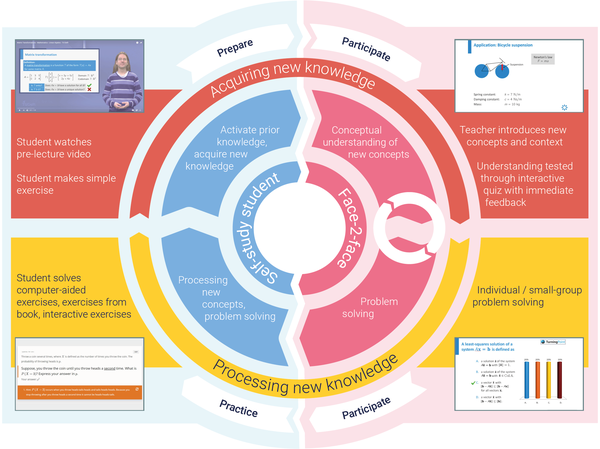PRIME Cycle
PRIME Cycle: "PREPARE, PARTICIPATE, PRACTISE"
A number of educational principles have been included to achieve the innovation and goals of the project. Active participation in teaching sessions (Freeman et al, 2014), conceptual understanding in the face to face contact (Rittle-Johnson et al, 2015), adequate performance feedback (Hattie 2007, Boud & Falchnikov, 2006) and a carefully balanced format of contextual examples (Cabo & Makaveev, forthcoming) using contextual problems, with a sufficient level of generalisation, to motivate the importance of maths in other fields of study and equally support transfer. In other words: the students should prepare themselves before coming to class, should participate actively by joining in-class-activities and after the face-to-face session students should practise to process the new knowledge. A blended approach was felt to best meet the requirements (Bonk et al., 2006; Szeto, 2014 in this context, due to the workload of teachers, increasing student numbers, the stimulation of autonomous learning, competency building and time on task. A video has been recorded, available at the TU Delft website (2017), which stimulates students to study differently.
Blended mathematics courses at TU Delft - Mathematics for Engineers - TU Delft

